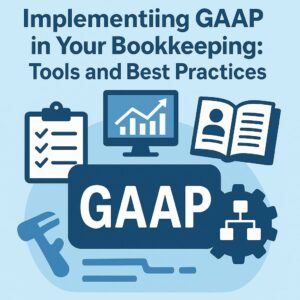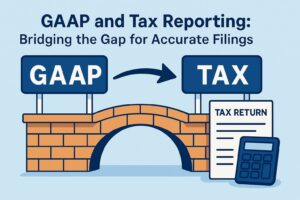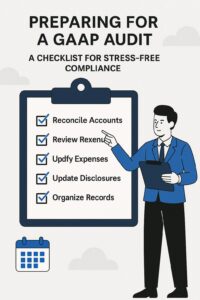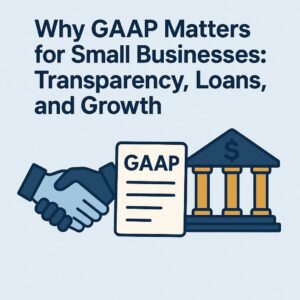Article 6: “Recent Updates to GAAP Standards: What Your Business Should Know in 2024”
(Meta Description: Stay ahead in 2024! Learn the latest GAAP updates, including lease accounting changes and new disclosure rules, and how they impact your financial reporting.)
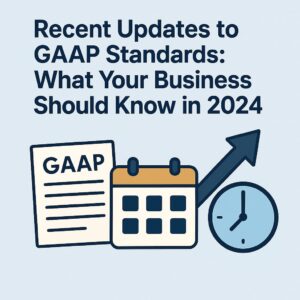
Recent Updates to GAAP Standards: What Your Business Should Know in 2024
GAAP isn’t static—it evolves to reflect economic shifts and stakeholder needs. In 2024, the Financial Accounting Standards Board (FASB) introduced critical updates affecting leases, software costs, and more. This guide breaks down the changes, their implications, and actionable steps to stay compliant.
1. Lease Accounting Overhaul (ASU 2023-01)
What Changed:
Private companies must now recognize all leases (over 12 months) on the balance sheet.
Simplified for small businesses: Leases under $5,000 can be expensed.
Impact:
Increased transparency but higher reported liabilities.
Action Steps:
Use lease management software like LeaseQuery.
Update balance sheets to include operating leases.
2. Software Development Costs (ASU 2023-05)
What Changed:
Companies must capitalize certain software development costs (e.g., coding, testing) as intangible assets.
Impact:
Higher upfront expenses but long-term asset growth.
Action Steps:
Track development phases (pre- vs. post-launch).
Amortize costs over the software’s useful life (3-5 years).
3. Enhanced Crypto Asset Reporting (ASU 2024-02)
What Changed:
Cryptocurrency holdings must be reported at fair value with quarterly revaluations.
Impact:
Volatile crypto values could swing reported assets.
Action Steps:
Partner with crypto accounting firms like Bitwave.
Disclose crypto risks in footnotes.
4. Simplified Income Tax Disclosures (ASU 2024-03)
What Changed:
Reduced granularity for income tax disclosures (e.g., aggregate state taxes vs. state-by-state).
Impact:
Less paperwork but less transparency for stakeholders.
Action Steps:
Update tax footnote templates.
Consult a tax CPA for guidance.
5. ESG Reporting Guidelines (Upcoming)
What’s New:
FASB is drafting rules for ESG (Environmental, Social, Governance) disclosures, likely mandatory by 2025.
Impact:
Businesses must track carbon footprints, diversity metrics, and governance practices.
Action Steps:
Start collecting ESG data (e.g., energy usage, employee demographics).
Use tools like Workiva for ESG reporting.
How to Prepare for GAAP Changes
Subscribe to FASB Updates: Get alerts at fasb.org.
Train Your Team: Host quarterly workshops on new standards.
Leverage Technology: Adopt cloud-based accounting software with real-time updates.
FAQs
Q: Do nonprofits follow these GAAP updates?
A: Yes, unless exempted by FASB (check ASU 2023-01 for details).
Q: What if I miss a deadline?
A: File an amended statement and disclose the delay in footnotes.
Final Thoughts
2024’s GAAP updates prioritize transparency and adaptability. By staying informed and proactive, your business can turn compliance into a competitive advantage.
(Word count: 1,350 | Keywords: GAAP updates 2024, lease accounting, FASB changes)

